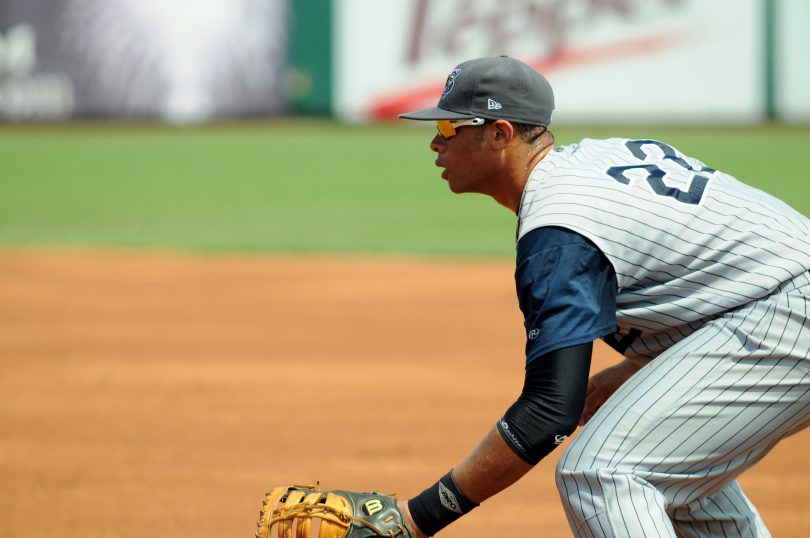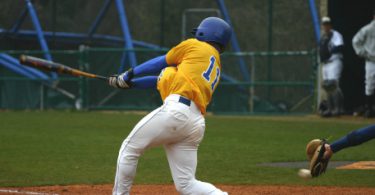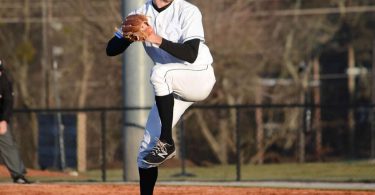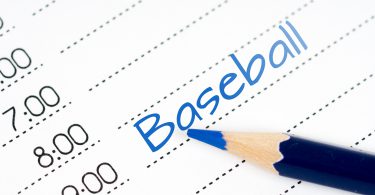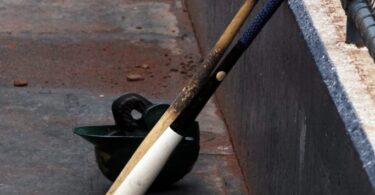The Situation:
There’s no one on and no one out in the third inning of a 1-1 game. The big lefty 3 hitter is up to bat to start the inning against a right hander starter.
The Play:
After fouling off the first pitch and taking a high fastball for a ball, the batter gets caught out front on a 1-1 change-up. He hits a routine ground ball off the end of his bat that rolls towards the first baseman. The first baseman takes several steps away from the line, squares the ball up and fields it clean. He looks up to see the pitcher making his way over to first to cover. He takes a shuffle as he transfers the ball to his bare hand and makes the underhand flip. The flip is on the money, about chest high and in plenty of time. The batter is still several steps away, and this is about as routine as a long underhand flip from the 1B can be. As the ball makes contact with the pitchers glove, he looks away to find first base, still a few steps away.
The Outcome:
The pitcher makes it to the base just fine, the only problem is that he is without the ball. Having taken his eye off the ball before ceiling off the catch, he closed his glove just a split second too soon, dropping the toss. By the time he realizes his mistake, he knows there is nothing he can do and the batter will be safe. The offense has the leadoff runner on by way of an E1.
What Went Wrong:
The mistake here is clear. The pitcher simply loses his focus and tries to complete step 2 before he is finished with step 1. This is actually a very common mistake, and we see it a handful of times or more each season at the Big League level. This isn’t a physical error, the play is far too routine for that. It’s a process error, meaning the player messes up the process for completing the play like he should. Like the order of operations in a math problem, the pitcher must stick to the step-by-step process, completing each step before moving on to the next, no matter how mind numbing it is.
The best way to prevent process errors like this one, where the pitcher simply gets ahead of himself, is by practicing at game speed and paying attention to details. Defenders must treat each practice rep with the seriousness of a game, especially when the number of repetitions they get are limited. Sure, pitchers spend time covering first on a regular basis, but what we are talking about here goes beyond that. It’s about handling the ball with care at every opportunity you get and understanding the repercussions for your failure to do so, even when it doesn’t seem to matter. That’s why the fix here is creating meaning where there usually is none.
Rather than harp on a concept and mistake that you already understand, we have a challenge for you that when done well can shift your mindset. Here’s the challenge—see how many days you can go without dropping a ball. Value your ability to handle and hold onto the baseball even in non-drill settings. Make ball security (both on the catch and the bare hand) an all-the-time thing. That means when you ask someone to flip you a ball from the bucket, you catch it. When you are pickup up balls in the batting cage after a round, you don’t drop any balls. When you are playing catch, you catch the ball and don’t fumble it or drop it on the transfer. Any unintentional drop starts you back at square one. This task may be harder than you expect at first, because you’ll likely realize that you haven’t prioritized handling the ball at all times. Once you make your brain aware of just how important ball security is and turn it into a competition with yourself (or teammates) to see how many days you can go, you will consciously and then subconsciously become more aware of handling the ball with purpose and take note when you do make a drop. This may sound like a silly exercise, but it will make a difference and show up in the game. Just think, with a shift in mindset, you have made every time you are holding a ball a valuable repetition in ball handling. Before long, you will be focused on valuing the ball without thinking about it, and thinking the game without any additional mental effort. Your meaningful reps grow exponentially, and so do your ball handling skills and focus.

